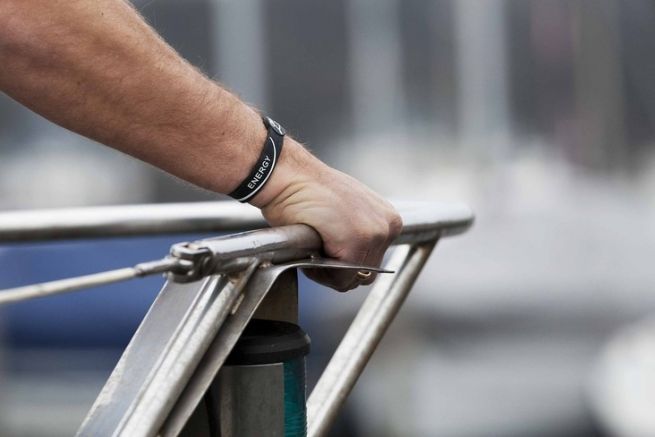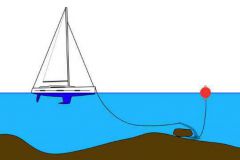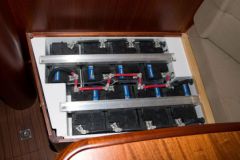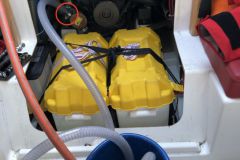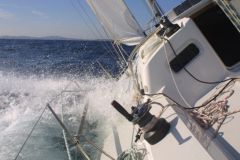All is well on board. Everyone's calm, going about their business. Suddenly you're a little warmer. A feeling of discomfort sets in. Nausea comes on... Seasickness sets in.
They say that seasickness meets the rule of the 5 F :
- the F atigue
- the F aim
- the F roid
- the F redhead
- the self F
In order to prevent seasickness from setting in, we must prevent the factors that will create one of these "F's" from setting in.
Sleep

Despite the organized watches, get as much sleep as possible, and as soon as possible. Siesta, sleeping in, all rests are valid, don't deprive yourself of them, you're at sea.
Eat

Having an empty stomach favours the development of seasickness. Eat lightly, but eat and make sure you don't feel hungry all the way through. Beware however of nibbling, you'll have to get into the pea jacket when you get back to shore!
Cover yourself

Before you get cold, put some clothes on. Add layer on layer, thermal underwear, hat. When you take off one layer, wait until you no longer feel cool before taking off the next one.
Dial

Talk with the crew or skipper about your feelings, fears or concerns. Do not hesitate to share your feelings about the speed or the inclination of the boat. Fear is normal and right. It is a protective reflex against which you can do nothing. You must cultivate this fear, it can be a life-saver.
Drink
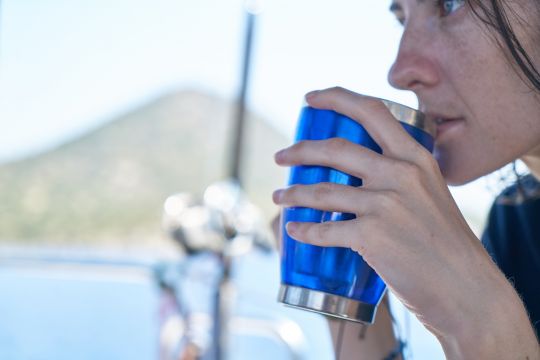
Get hydrated. Drink before you feel thirsty. Mostly water. At sea, the cooling action of the wind makes you unaware of the heat that causes sweating and consumes important water resources. It is necessary to consume at least 1.5 litres of water every day to maintain the natural expenditure of the human body. Note that alcohol will increase dehydration and therefore the feeling of discomfort.
Get out
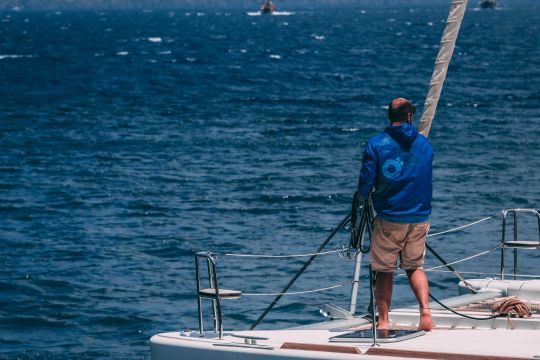
Seasickness will often be present when you stay in the boat. The desynchronization between what your eyes see (a motionless environment) and what the brain perceives (the mobility of the boat) will cause this discomfort. Climb on deck, stare at the horizon, look as far away as you can, concentrating on what you are observing.
Treat yourself
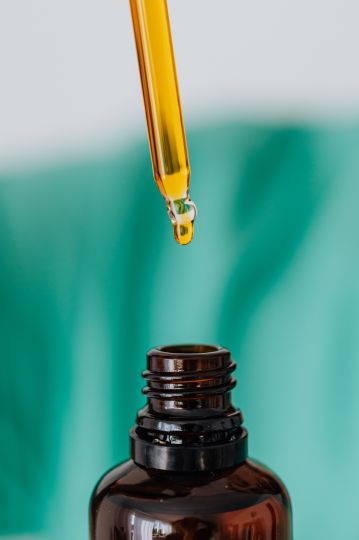
Some medications can help fight seasickness. So can essential oils, patches or acupuncture. Everyone will have their detractors and defenders. The only common feature is that they are active, if not effective. Both of them can cause drowsiness, so we recommend that you talk to your doctor on land before starting a treatment. And to test it before going to sea, to check how your body reacts to this treatment.
Educate yourself
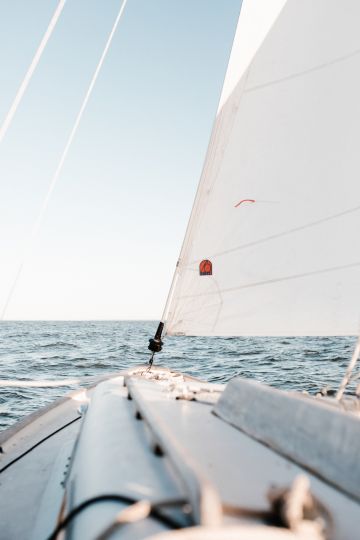
Optokinetic rehabilitation methods (which therefore combine optics and movement) are generally effective. The principle is to recreate, on land, the conditions of seasickness so that the body and the brain get used to this imbalance and learn how to manage it. Carried out by an ENT specialist, this re-education is generally effective after about ten sessions.
Everybody's concerned
Seasickness happens to everyone. It's neither a sign of weakness nor a beginner's mark. While it is true that more and more frequent sailing will accustom the body and reduce the occurrence of this ailment, very accustomed sailors can see the onset of the ailment in question. Talking about your discomfort will allow you to compare your experience with that of your teammates, not to be ashamed of it and to see that you are not the only one affected on board.

